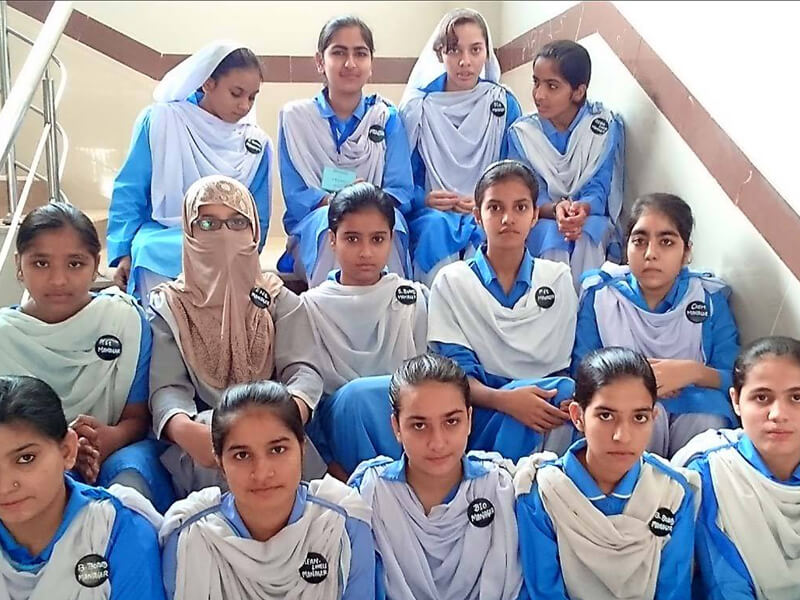Science Exhibition 2019
The Annual Science Exhibition was held at the Quaideen Campus in Dec 2019 and students from Grade 3 to Matric took part in the event. The students and teachers worked tirelessly to prepare projects related to mechanics, probiotics, agriculture etc. The preparations took one month to prepare and on the day of the Exhibition, the students gave excellent presentations in front of the judges. This year we welcomed Mr. Abrar Hasan, CEO of National Foods, Mr. Osman Asghar Khan, Honorary Consul General of Ireland and Mr. Arij Ali as Chief Guests and Judges.
This event showcases students learning and research and encourages them in their studies and to pursue higher education.
Education is one of the most important assets to enable progressive human development, and SKMF believes that education has the highest return of any social investment. To promote education in Pakistan, SKMF aims to improve the standard of primary and secondary education by adopting government owned schools. Our intervention aims at improving infrastructural elements of, and access to school, while simultaneously focusing on the quality of education at school for a lasting behavioral impact.
Our work in education also extends to improve existing curricula and enhance the dynamics of learning through the introduction of workbooks, digital teaching aids, trained teachers and extracurricular activities.
By working on infrastructure and curriculum we can begin implementing a holistic work model that will create a friendly and productive learning environment for the students. Our program empowers boys and girls with adequate knowledge and skills to break the cycle of poverty, not only for themselves but also for generations to come.
Initial interventions are planned to commence from Karachi and then extend to other less developed areas of Pakistan.
Poverty, gender and social fragmentation have been shown to hamper access to education in Pakistan. Large disparities exist in the teaching methodologies, textbooks and infrastructure across government owned schools. Today, more than half of Pakistan’s population is unable to read and write (reference this from a census or UN data), and the feeling of apathy and redundancy that accompanies this disenfranchisement is pervasive. Illiteracy also compounds issues related to basic health and human rights.
By enabling literacy, SKMF believes we are empowering students, especially girls, with the tools, knowledge and confidence needed to understand, promote and protect their own rights, while developing further and becoming independent. With education, children, families, communities and even nations can break the cycle of poverty towards uplifting themselves.
- The highest dropout rate is in grade 5 (42.8 percent) Initial Interventions are already in progress at our school in Karachi . Similar Intervention are slowly going to be extended to other less developed areas of Pakistan .
- More girls than boys are out of school; 38.9 percent of primary school-age girls are not attending school, whereas the rate is 30.2 percent for boys.
- 6.5 million children are still not enrolled in primary education and another 2.7 million are not enrolled at lower secondary level
- Adopt and refurbish government schools
- Establish new primary and secondary schools
- Build libraries, computer and science labs
- Provide filtered water and sanitation facilities
- Provide school uniforms and school supplies
- Develop and implement extracurricular activities and vocational trainings labs
- Add workbooks to existing curriculum
- Establish youth leadership programs and regularize teacher training





